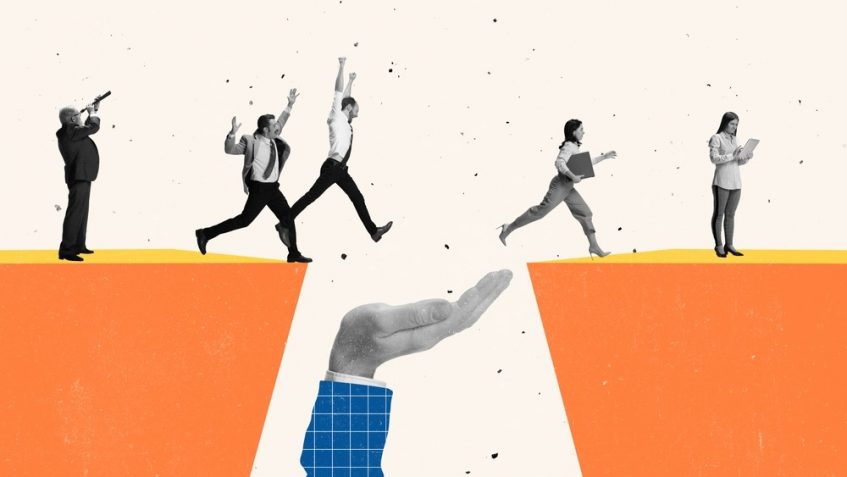
Microcredentials – a tool that supports continuous development
An increasingly fast-changing world requires us to continuously upgrade our skills. Already in 2020, the World Economic Forum reported that 50% of the world’s workforce will need to re-skill by 2025. This statement is becoming a fact – if we want to be competitive in the labour market, we need to constantly develop our skills. This is fostered by the trend, which has been progressing for several years in Europe, of confirming various skills, even small ones.
Read on and you will learn:
- What are microcredentials and and how can they be obtained?
- How are microcredentials linked with the trend of modularizing skills?
- What are the benefits of obtaining microcredentials?
Microcredentials – what are they and what are their types?
What we learn every day at home, at school or at work, consciously or unconsciously, can be combined into larger skill sets, equipping us with specific competencies. They can prove to be our asset in the job market. But how can such a skill be presented, how can it be made credible?
Each skill can be expressed through microcredentials, that is, smaller or larger achievements confirmed by a credible institution or university. They can be accumulated into larger credentials or form part of our portfolio.
– explains Urszula Buchowicz, microcredentials expert in the project “Microcredentials – piloting a new solution to support lifelong learning”.
But also important is the fact that learning outcomes can be presented in digital form, such as in the Odznaka+ application, which was created at the Educational Research Institute and is currently being developed.
Digital badges are usually associated with non-formal education (e.g., participation in educational projects), informal learning (e.g., at home or in the workplace), and achievements in lifelong learning, especially those relating to professional development. Such badges most often accompany the acquisition of skills in online form. Their special feature is the ability to share them, such as on social media. In this way, they perform the important function of digitally visualizing a person’s achievements.
Microcredentials and the modularization of skills
Through microcredentials, we can accumulate skills acquired in different learning contexts in stages, not only through formal education, but also through non-formal education and informal learning.
The modularization of educational activities and programmes, combined with microcredentials, makes it easier to build our own learning and professional development pathways. According to a Cedefop report, microcredentials can complement formal education and training systems, which are sometimes considered too slow in responding to the rapid changes in the labour market.
Microcredentials – what can you gain from them?
Planning a career path requires reflection about one’s own learning process: how do I learn, why do I learn, and what do I learn? In which direction would I like/want to develop further? How does what I do in my personal life (my interests) affect my functioning in the work environment?
If we look at our accomplishments as a range of experiences throughout our lives, we can see what makes us unique and special in a world where very many people have identical school certificates or college diplomas, but they don’t show the individual qualities and advantages of each job candidate. Microcredentials go beyond this, they show individual achievements that can be combined into our own constellations of skills.
– says Ursula Buchowicz.
